
Filter News
Area of Research
News Type
News Topics
- (-) Advanced Reactors (12)
- (-) Bioenergy (68)
- (-) Composites (11)
- (-) Critical Materials (5)
- (-) Cybersecurity (14)
- (-) Exascale Computing (51)
- (-) Microscopy (23)
- (-) Space Exploration (13)
- (-) Transportation (30)
- 3-D Printing/Advanced Manufacturing (56)
- Artificial Intelligence (77)
- Big Data (45)
- Biology (80)
- Biomedical (42)
- Biotechnology (25)
- Buildings (30)
- Chemical Sciences (35)
- Clean Water (16)
- Computer Science (111)
- Coronavirus (19)
- Education (2)
- Emergency (3)
- Energy Storage (32)
- Environment (116)
- Fossil Energy (6)
- Frontier (44)
- Fusion (38)
- Grid (32)
- High-Performance Computing (81)
- Hydropower (6)
- Isotopes (33)
- ITER (4)
- Machine Learning (37)
- Materials (51)
- Materials Science (55)
- Mathematics (8)
- Mercury (7)
- Microelectronics (3)
- Molten Salt (2)
- Nanotechnology (17)
- National Security (60)
- Neutron Science (82)
- Nuclear Energy (66)
- Partnerships (36)
- Physics (34)
- Polymers (9)
- Quantum Computing (35)
- Quantum Science (48)
- Security (16)
- Simulation (42)
- Software (1)
- Statistics (2)
- Summit (40)
Media Contacts
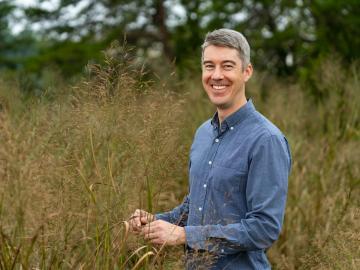
For ORNL environmental scientist and lover of the outdoors John Field, work in ecosystem modeling is a profession with tangible impacts.

The daily traffic congestion along the streets and interstate lanes of Chattanooga could be headed the way of the horse and buggy with help from ORNL researchers.

Four first-of-a-kind 3D-printed fuel assembly brackets, produced at the Department of Energy’s Manufacturing Demonstration Facility at Oak Ridge National Laboratory, have been installed and are now under routine operating
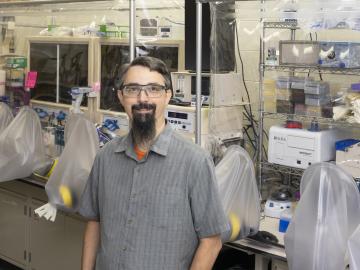
As a metabolic engineer at Oak Ridge National Laboratory, Adam Guss modifies microbes to perform the diverse processes needed to make sustainable biofuels and bioproducts.
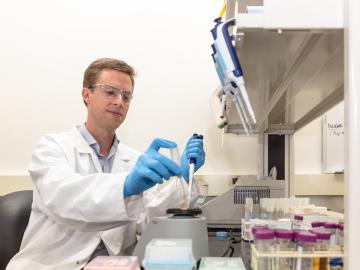
In a step toward increasing the cost-effectiveness of renewable biofuels and bioproducts, scientists at ORNL discovered a microbial enzyme that degrades tough-to-break bonds in lignin, a waste product of biorefineries.

As rising global temperatures alter ecosystems worldwide, the need to accurately simulate complex environmental processes under evolving conditions is more urgent than ever.

ORNL’s Zhenglong Li led a team tasked with improving the current technique for converting ethanol to C3+ olefins and demonstrated a unique composite catalyst that upends current practice and drives down costs. The research was published in ACS Catalysis.
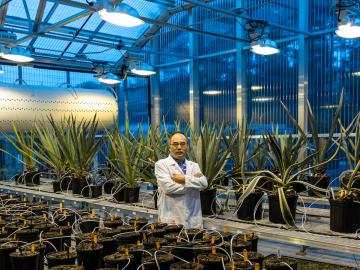
Scientists at ORNL have discovered a single gene that simultaneously boosts plant growth and tolerance for stresses such as drought and salt, all while tackling the root cause of climate change by enabling plants to pull more carbon dioxide from the atmosphere.
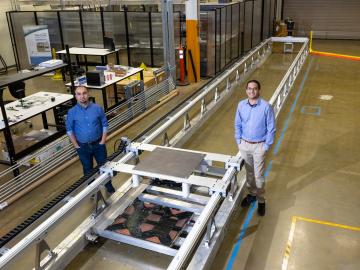
Consumer buy-in is key to the future of a decarbonized transportation sector in which electric vehicles largely replace today’s conventionally fueled cars and trucks.
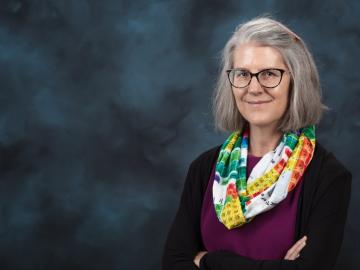
Deborah Frincke, one of the nation’s preeminent computer scientists and cybersecurity experts, serves as associate laboratory director of ORNL’s National Security Science Directorate. Credit: Carlos Jones/ORNL, U.S. Dept. of Energy


